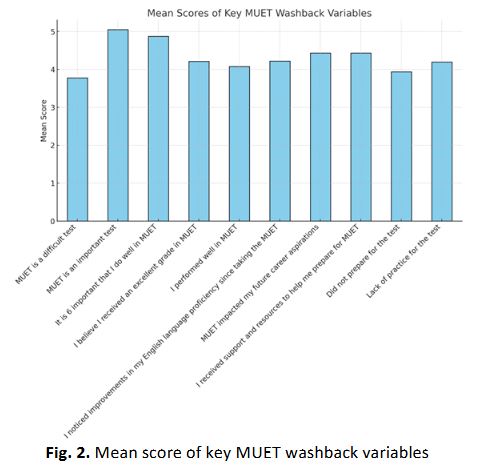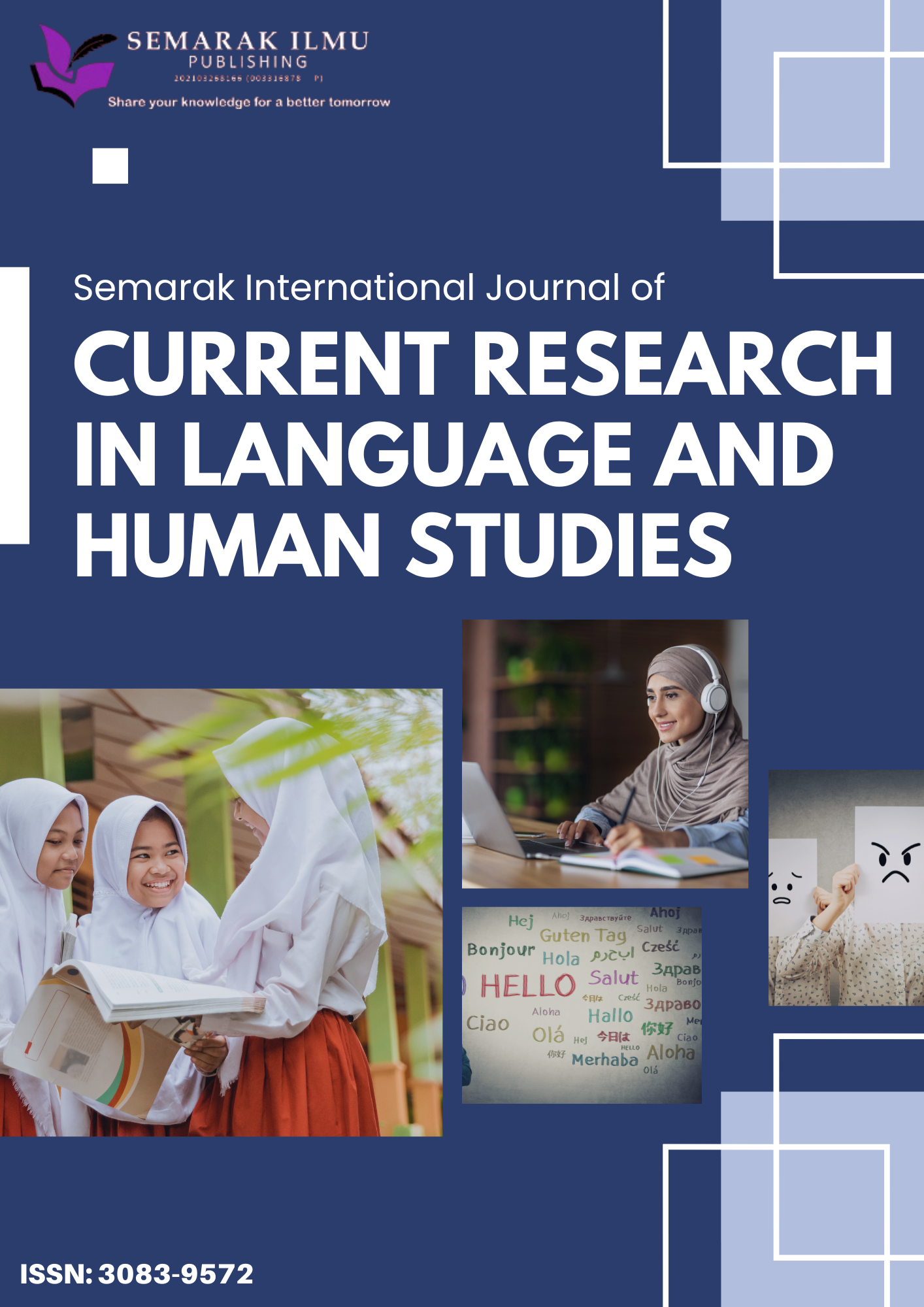Investigating MUET: The Intended and Unintended Washback Effects on Malaysian Education
DOI:
https://doi.org/10.37934/sijcrlhs.3.1.1424Keywords:
MUET, washback, CEFR, MalaysiaAbstract
The Malaysian University English Test (MUET) plays a significant role in assessing students’ English proficiency and shaping their academic and professional trajectories. This study investigates the intended and actual washback effects of MUET, focusing on how the test influences learning behaviours, and career aspirations. Employing a mixed-methods exploratory design, the study involved semi-structured interviews with test developer, as well as a survey of 283 MUET test-takers to analyse their experiences and attitudes. The findings indicate that MUET is widely regarded as an important and influential test, aligning with its intended washback of promoting structured language learning and international recognition. The correlation analysis reveals that students who perceive MUET as important tend to have higher motivation and report improved English proficiency. However, gaps in preparation and limited engagement with CEFR standards suggest that the intended washback is not fully realized in practice. Additionally, students acknowledge MUET’s impact on career aspirations, yet concerns remain regarding fairness in assessment and institutional support. A thematic analysis of qualitative data further highlights test preparation challenges, the influence of MUET on teaching methodologies, and varying perceptions of test fairness. While some students benefit from structured preparation, others struggle with inadequate practice opportunities and lack of clarity regarding assessment criteria. The study also identifies moderate relationships between preparation support and performance, indicating that institutional interventions play a role but may not be sufficient in bridging preparation gaps. These findings suggest that MUET’s positive washback could be enhanced by improving institutional support, refining test preparation strategies, and strengthening alignment with CEFR frameworks. Policymakers and educators should focus on making MUET preparation more accessible, ensuring fairness in assessment, and reinforcing its role in career readiness. Future research should further examine causal relationships between instructional practices, test preparation, and performance outcomes to optimize the test’s effectiveness as a standardized English assessment tool.









